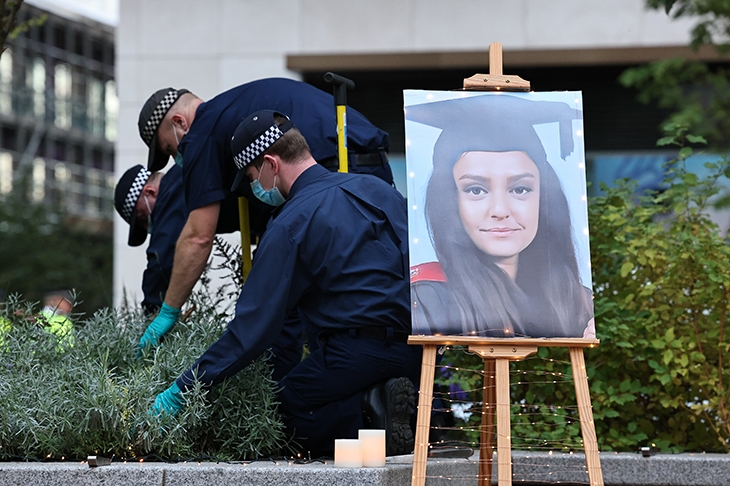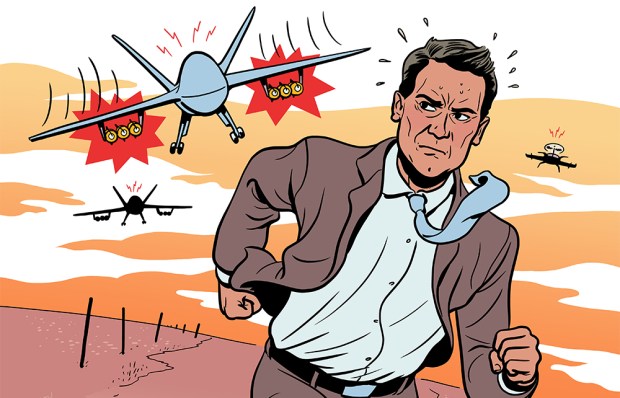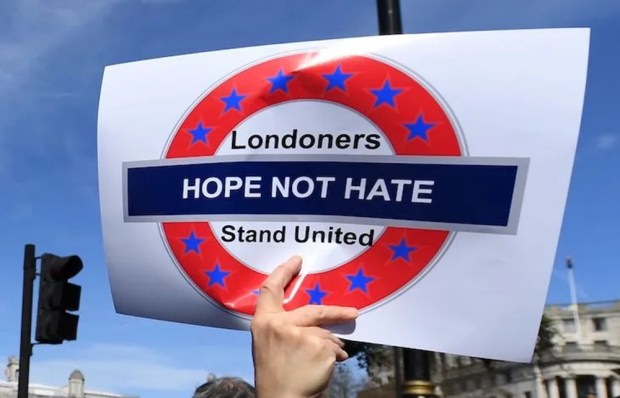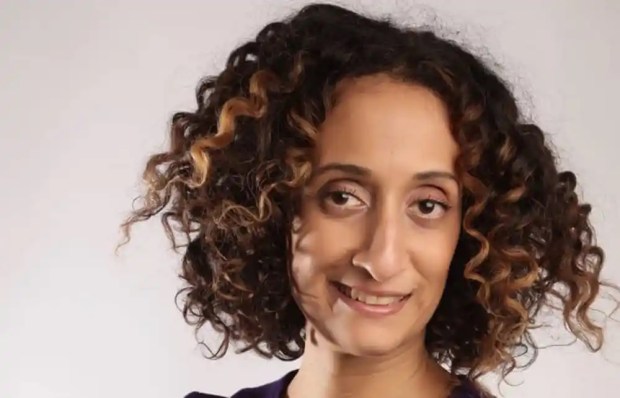I’m not sure very many of our politicians, the London Mayor or even the Met can really be said to care about the death of Sabina Nessa, the poor young school-teacher murdered in London nearly a fortnight ago. If you claim to care about the victim of a terrible crime, if you’re going to grandstand and say ‘something must be done’, you have to care about what actually happened to her. The circumstances matter — else how can you try to prevent it happening again?
‘Say her name’, they all intone, before using that same name as a sort of springboard from which they can leap on to their own favourite hobby-horses and canter off, quite forgetting this very particular, very sad affair.
For Sadiq Khan, Sabina Nessa’s death was another great opportunity to say how important it is that misogyny becomes a hate crime. This is Khan’s pet policy and formed part of his election campaign back in the spring. The violence against women and girls is an ‘epidemic’, he said on Good Morning Britain last week, his little face crumpled with concern. In the name of Sabina Nessa, Sarah Everard and sisters Bibaa Henry and Nicole Smallman, misogyny should be made a hate crime, and harassment in a public space against women should be a criminal offence.
Well, it sounds as if it’s relevant. It’s a policy about women and crime. But even if misogyny was a hate crime, how would it have helped Sabina? She wasn’t harassed in a public space, she was murdered, and murder is already a crime.
And does it really make sense, in Sabina’s name, to give the overstretched and exhausted police less time to hunt actual killers? A hate crime is in the eye of the beholder. A wolf whistle could be a criminal offence if misogyny became illegal. It’s not obvious to me that setting the police on scaffolders instead of murder suspects amounts to progress.
The day after the evening vigil for Sabina, the radio was bursting with righteous comment, almost all of it along Khan-ish lines. What’s needed to prevent terrible tragedies like this is a ‘better conversation around women’, and more men to become ‘allies’. ‘What single thing would you like to change?’ I heard the radio ask. The answer: ‘I’d like to see more men at the next vigil.’ But imagine the set of men who might be persuaded to attend a memorial for a murdered girl, or call themselves a feminist or an ally. Do you really think it overlaps in any way with the set of men who fantasise about killing? Invite who you like to a vigil, but it’s not going to dent the murder rate.
My own feeling is that a blanket ban on almost all nasty porn would do more for women than any number of vigils. Take Wayne Couzens, the police officer who killed Sarah Everard. Sure, you could call him a misogynist, but it’s far more relevant that he was obsessed with very violent pornography. Being anti-porn is not, however, progressive.
One columnist for a tabloid paper decided that the obvious answer to the problem of murderous violence against women was better sex education. ‘No more condoms on bananas… teach everyone when you can, and cannot, consent and why that matters. Sex education is left up to schools, but it should be made a legal requirement just like the teaching of maths.’
The murder of women is a consent issue? It’s enough to parboil your brain. What was it that the killer was supposed to ask Sabina to consent to? Murder?
A considerable part of the population seems to think that what’s needed to safeguard against horrible violent murder is more ‘education’; as if men hurt women because they somehow don’t quite know it’s wrong. So rush them all to a vigil, ‘call them out’, make them allies and they might just find the will to resist, like a drunk in AA staying sober one day at a time.
But if that’s the case, that men who don’t know any better are potential killers, then we women really had better beware. No more prancing about in hot pants after dark. We should creep about under armed guard, and look to the Taliban for tips, because this idea — that men live on the verge of violent rape — is very much their world view too.
In the days after the murder, the Met police had what seemed to me to be a decent and useful reaction. Local stations put out a list of ‘tips for staying safe on the street’: walk assertively, keep your phone charged, tell someone where you’re going, travel in groups. It was a version of what the parents of daughters said when they saw the news that day: be careful, stick with your friends. And the same thing Sabina Nessa’s own sister said at her vigil: stay in groups, stay safe.
Predictably, exhaustingly, there was more outrage over this sensible advice than there was over the murder itself. Social media was apoplectic. The police were ‘victim–shaming’; they were complicit in a society that silences girls. Women should be able to wear what they like.
And to my horror, instead of standing by their sensible advice, the Met then backed away from it. Dame Cressida Dick, fatally compromised by Operation Midland, desperate to make up for the crass way police handled Sarah Everard’s vigil, sent Assistant Commissioner Louisa Rolfe out to reassure London that the list had been a mistake, and that the Met were all allies and good feminists too. That they repented for any perceived deviation from the accepted line.
‘It’s really important to us that we don’t ask women to change their behaviour,’ said Rolfe. ‘Violence against women and girls is a priority for police across the UK, but we’re really conscious that women should be free to go about their lives without fear of abuse.’
No. Don’t change your behaviour. Don’t be vigilant. Ignore the advice of the Nessa family and live in the world as you think it should be, not in the one that is. That’s the official police position. But it’s not how Sabina Nessa should be remembered.
Got something to add? Join the discussion and comment below.
Get 10 issues for just $10
Subscribe to The Spectator Australia today for the next 10 magazine issues, plus full online access, for just $10.
You might disagree with half of it, but you’ll enjoy reading all of it. Try your first month for free, then just $2 a week for the remainder of your first year.















Comments
Don't miss out
Join the conversation with other Spectator Australia readers. Subscribe to leave a comment.
SUBSCRIBEAlready a subscriber? Log in